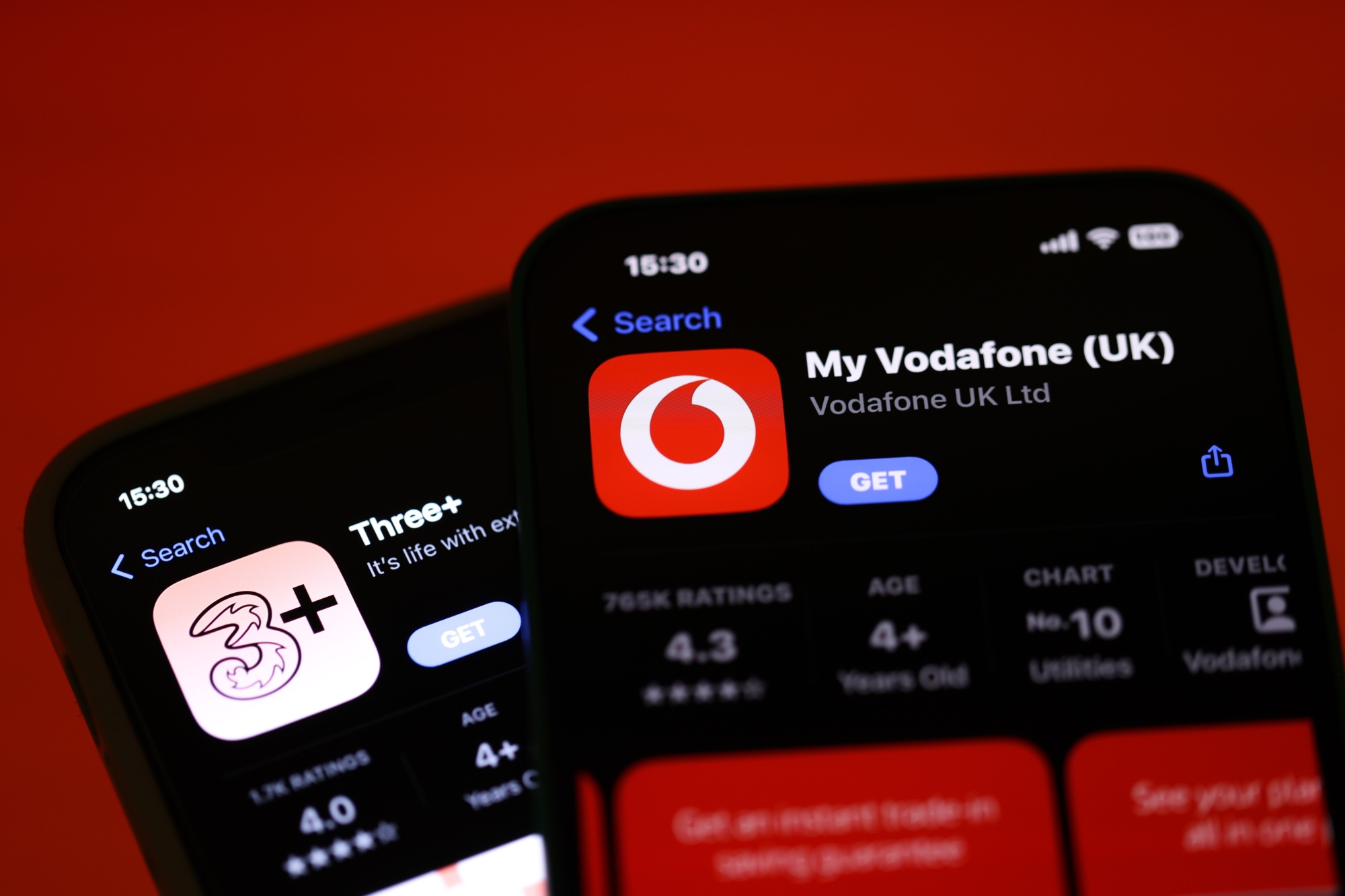UK watchdog says Vodafone and Three merger must benefit consumers

Vodafone and Three must demonstrate their proposed merger is in the best interests of consumers after the UK’s competition watchdog announced an official investigation into the deal.
The Competition and Markets Authority (CMA) will decide whether combining the two major mobile networks will reduce choice and lead to higher prices for consumers.
The Unite Union has been a vocal critic; it claims the merger will push annual bills up by £300 per year.
Vodafone and Three have stated they will invest around £11 billion in the UK’s infrastructure if the merger goes ahead.
Bringing the two companies together is seismic for the telecoms industry as it would create the most extensive mobile network in the UK with 27m customers.
PP Foresight analyst Paolo Pescatore believes the merger “makes sense” but expects there to be concessions.
He says the two companies need to demonstrate how they can support improvements to network sharing, among other areas.
Pescatore added: “While a precedent has already been set following the failed Three/O2 deal, let’s see if the authorities have a change of heart.”
The Three and O2 merger was blocked by the European Commission in 2016.
Three says its proposed merger with Vodafone would supercharge the 5G rollout in the UK and deliver better coverage and services.
Vodafone UK chief executive Ahmed Essam focused on the additional investment in a statement.
He says the deal will “significantly enhance competition” and create a business that will be able to compete with “two larger converged players”, BT-owned EE and Virgin Media O2.
The CMA will now canvas opinions from other network operators and assess how the tie-up will affect competition before publishing its findings later this year.
